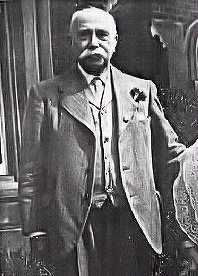Introduction

Born: December 29, 1856, Leeds, England.
Died: 1944, Lytham, Lancashire, England.

Born: December 29, 1856, Leeds, England.
Died: 1944, Lytham, Lancashire, England.
James was the son of Wesleyan minister Edward Lightwood. He was born and baptized while his father was on the Leeds Brunswick Circuit.
He attended Kingswood School (1866–72), earned a BA from London University, and became headmaster of Pembroke House, a private school in Lytham.
He went on to serve three years on the Board of Improvement Commissioners in Lytham, on the Lytham Council for six years, and as Chairman of the Streets Committee for four years. His resolution to bring gas into Fairhaven was eventually carried by one vote.
Apart from music, his other passion was cycling. He began cycling in 1874 on a boneshaker.
By 1885, he was a member of the Cyclists Touring Club (CTC), and soon gained prominence.
He was Chief Consul for Lancashire, and was on the CTC Council from 1887. Honorary life membership came in 1907 in recognition of his services to the club, and in particular with publication of the club’s route books and other writings.
Music was his greatest love, though, and hymnody in particular. He was an accomplished organist, and after two years as deputy organist at the Drive Wesleyan Church, St. Annes, he was appointed Honorary Organist and Choirmaster in 1894.
Due to the pressure of work from his appointment as editor of the new Methodist publication The Choir and organizing the newly formed Music Department of the Methodist Publishing House, the trustees at Drive Church made him a grant of £20 to assist him in his research in hymnology.
While advising Methodism on musical matters, he found the unique 1761 Snetzler organ for the New Room at Bristol.
If you can help with any of these items,